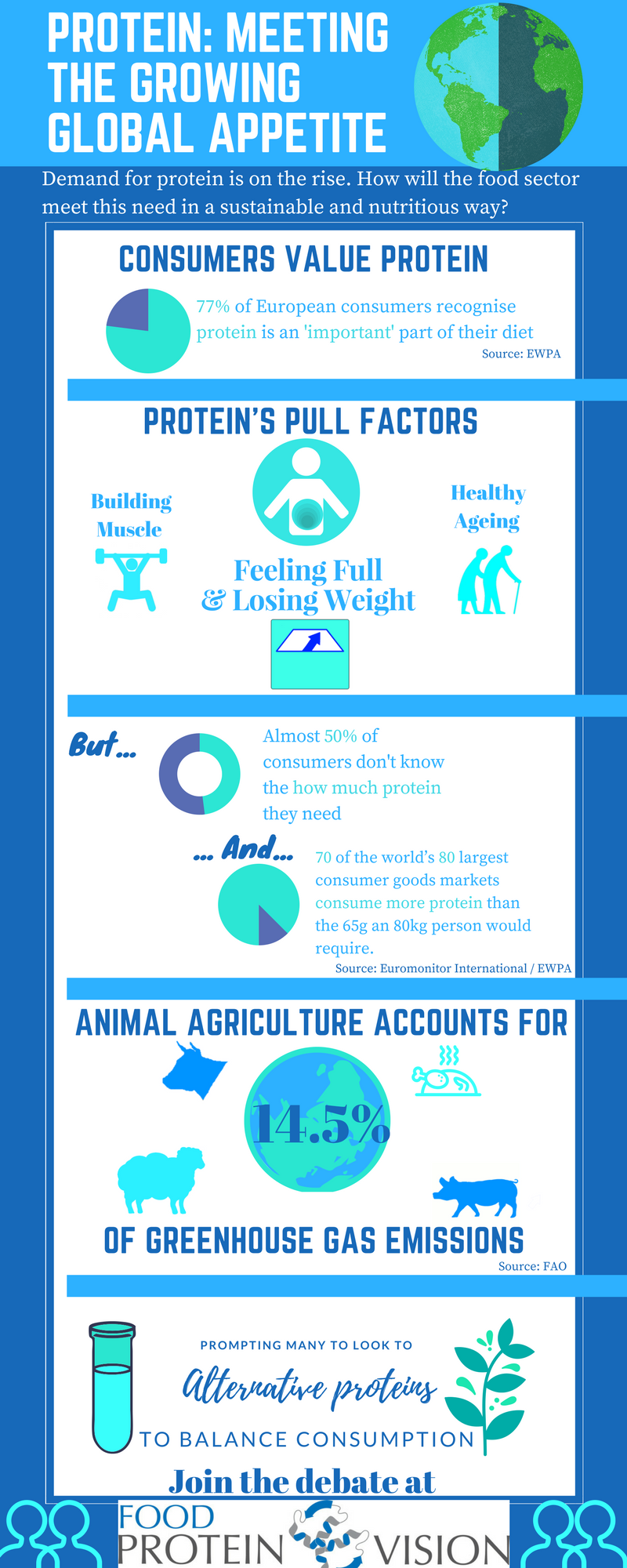Recent years have seen increased consumer awareness of the role protein plays in health and well-being, resulting in rising demand for high-protein foods. Once the preserve of bodybuilders, protein has been propelled into mainstream food culture. Today, it is associated with weight management, satiety and supporting lean muscle development.
But the truth is, most of us don't know how much protein we should consume - meaning many consumers in developed markets eat too much. And while protein has many health benefits, over-consumption also carries risk factors.
While protein processors must respond to consumer confusion, on the one hand, they must tackle sustainability issues on the other.
The relationship between animal protein and greenhouse gas emissions is gaining recognition and increasingly informing buying decisions. While people want to eat more protein, many do not wish to do so at the expense of the environment.
Ethical consumerism is placing the spotlight on alternative proteins. However, the dominant position that animal proteins holds in the European diet means that ways to make meat, dairy and egg production more sustainable should be central to food industry innovation and strategy.

Food Protein Vision is an event being staged in Amsterdam in March. During the three day gathering, experts in the field will drill down on the key issues impacting protein - as well as looking at future innovation and growth drivers. Click here to register.

